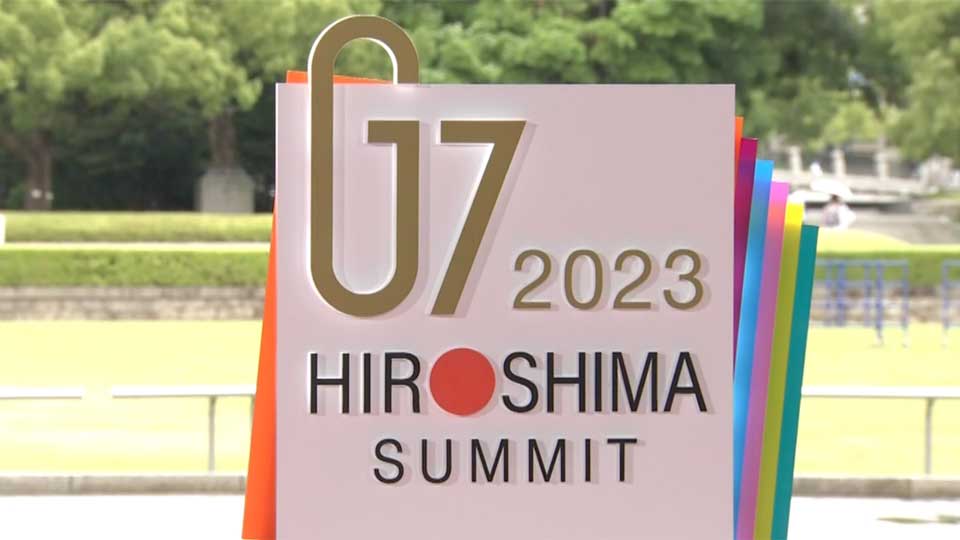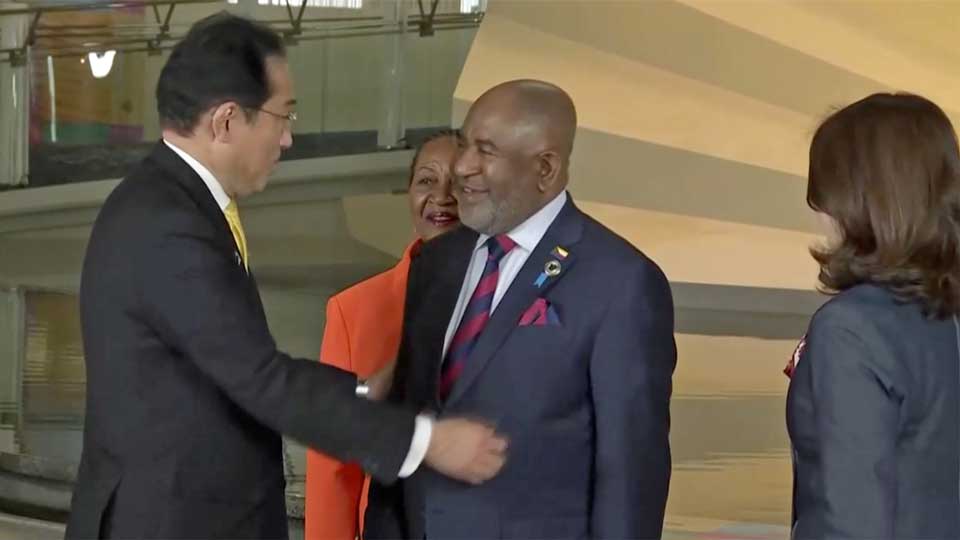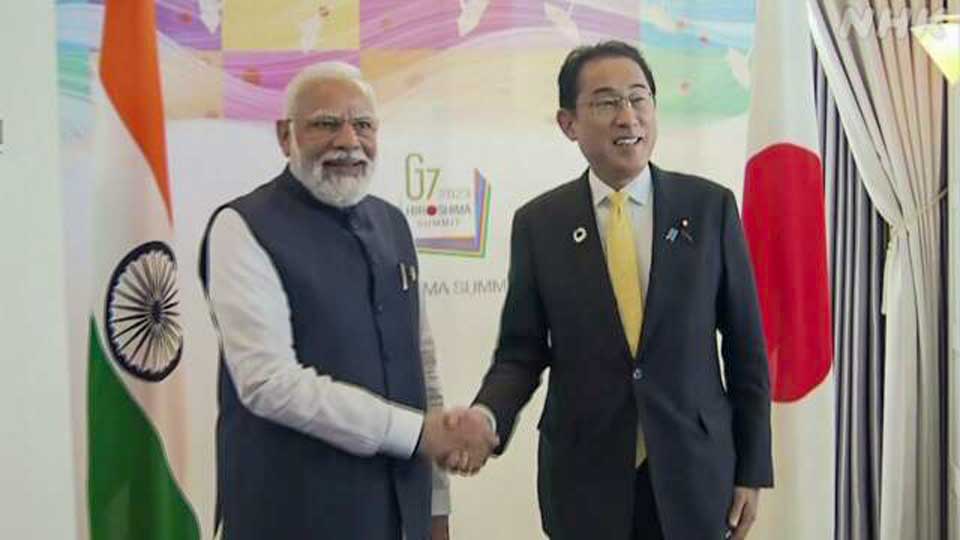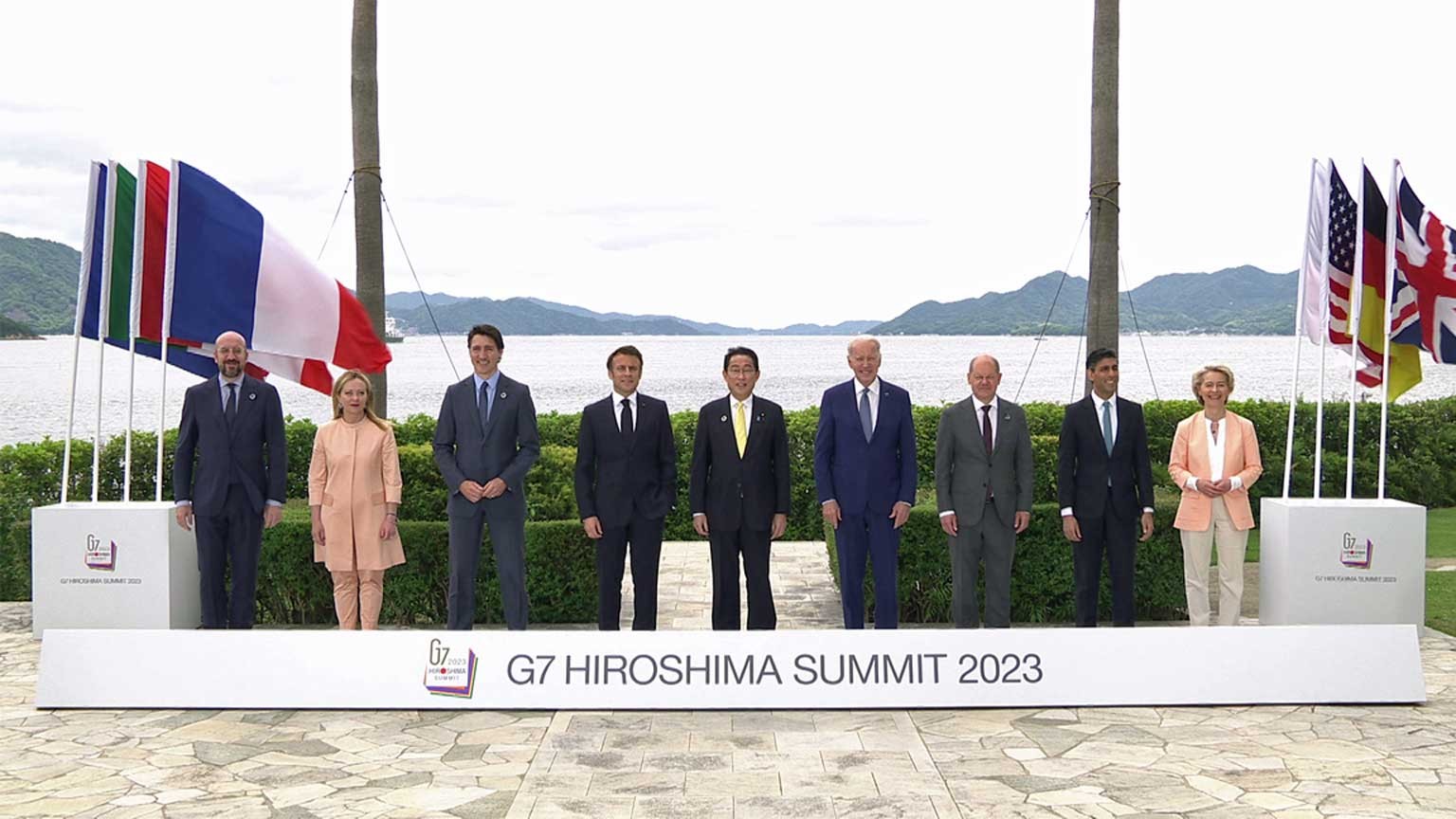It says that the G7 nations will support Ukraine "for as long as it takes in the face of Russia's illegal war of aggression."
It also expresses serious concern about the situation in the East and South China Seas. It says the G7 nations are strongly opposed to any unilateral attempts to change the status quo by force or coercion.
It states that the G7 leaders reaffirm the importance of peace and stability across the Taiwan Strait, and call for a peaceful resolution of cross-strait issues.
The declaration also calls on China to press Russia "to stop its military aggression, and immediately, completely" withdraw troops from Ukraine. At the same time, the G7 is asking to engage with China on areas such as the climate and biodiversity crisis and the conservation of natural resources.
It also says the G7 will strengthen disarmament and non-proliferation efforts, working towards the ultimate goal of a world without nuclear weapons "with undiminished security for all."

As for the global economy, the document says the group will continue to closely monitor global financial markets and stand ready to take appropriate action to maintain stability.
It says the G7 will launch a platform to counter so-called economic coercion used to influence policies or the decision-making of other countries. It is an apparent bid to keep China in check.
The group says the G7 nations will address growing concerns over food security by providing assistance to vulnerable countries and regions affected by the current food crisis, focusing in particular on Africa and the Middle East.
In the digital field, the document says the group will advance discussions on inclusive artificial intelligence governance to achieve the shared goal of trustworthy AI.
On gender equality, the document says "we endeavor to work with all segments of society to ensure full, equal and meaningful participation of women and girls in all their diversity as well as LGBTQIA+ persons in politics, economics, education and all other spheres of society and to consistently mainstream gender equality in all policy areas."
Kishida welcomes outreach countries
Japanese Prime Minister Kishida Fumio welcomed outreach countries with his wife Yuko.

Kishida greeted leaders of eight non-member countries; Indian Prime Minister Narendra Modi, Indonesian President Joko Widodo, Australian Prime Minister Anthony Albanese, South Korean President Yoon Suk-yeol, Prime Minister Mark Brown of the Cook Islands, President Azali Assoumani of Comoros, Brazilian President Luiz Inacio Lula da Silva, and Vietnamese Prime Minister Pham Binh Minh.
He also welcomed representatives from seven international organizations: The United Nations, the IAEA, the IMF, the OECD, the World Bank, the WHO and the WTO.
They take part in a session on "responding to complex crises," including global food problems and international health policies, scheduled on Saturday afternoon.
G7 leaders discuss Global South
The first session on Saturday morning focuses on ways to boost engagement with non-G7 partners — the emerging and developing nations collectively known as the Global South.
Japanese Prime Minister Kishida Fumio has invited the leaders of eight non-member countries including India, Indonesia, Brazil, the Cook Islands, Comoros, and Vietnam.
Ahead of the session, Kishida met separately with Indian Prime Minister Narendra Modi, Indonesian President Joko Widodo and Brazilian President Luiz Inacio Lula da Silva.

Keio University Professor Hosoya Yuichi, an expert on international politics, says there's a reason the G7 needs to cooperate with these countries to tackle global issues.
He says, "The share of the total G7 countries' GDP will be further shrinking in the coming decades. It means that the international community should be more directed by rising powers such as India, Indonesia, and Brazil. It means that important, difficult issues cannot be solved solely by the G7 countries."
He also says the rivalry between the G7 bloc and Russia and China is also behind the issue.
"More and more countries in the Global South feel that justice and legitimacy lies in Russia and in China. And they're listening to the voice of the Russian government or Chinese government, and they are much more critical of what the United States is saying or doing in the world."
But he also says "the world is not so simplistic. The world is not so binary. And each country has their own ideology, historical tradition, economic benefits and so on. So we shouldn't ask them to choose either the G7 or Russia and China. I think we need to help them to maintain their economic growth."
And Professor Hosoya says Japan, as host nation of the summit, is playing a critical role in collaborating with the Global South.
"I feel that the G7 should not be seen as the representatives of the Western club, the rich western club. The G7 should be much more inclusive. I think that the Japanese role is important because Japan has been the only Asian country — non-Western country — within the G7. I think Japan's role is trying to introduce some of the Asian interests or voices of Asian cultural, traditional history into the G7 summit meeting."
Summit schedule Day 2: May 20
The theme of the working lunch is "economic resilience and economic security." With China in mind, leaders are expected to discuss how to respond to "economic coercion" — the use of export restrictions and other measures to put pressure on countries. They will also likely examine cooperative measures to strengthen supply chains for semiconductors, critical minerals and other products.
In the afternoon of day two, leaders of eight invited countries, including India, Australia and South Korea, and representatives of seven international organizations will join the summit.
The invited countries and groups will then join a session called "Outreach Meeting." The theme is "responding to complex crises." Participants will look at global food problems, international health policies and gender issues.
The theme of the last session of day two is ”common efforts for a sustainable world." Leaders will exchange views on climate change, energy and environmental issues.
At the end of day two, participants and their partners will be invited to a social event.

